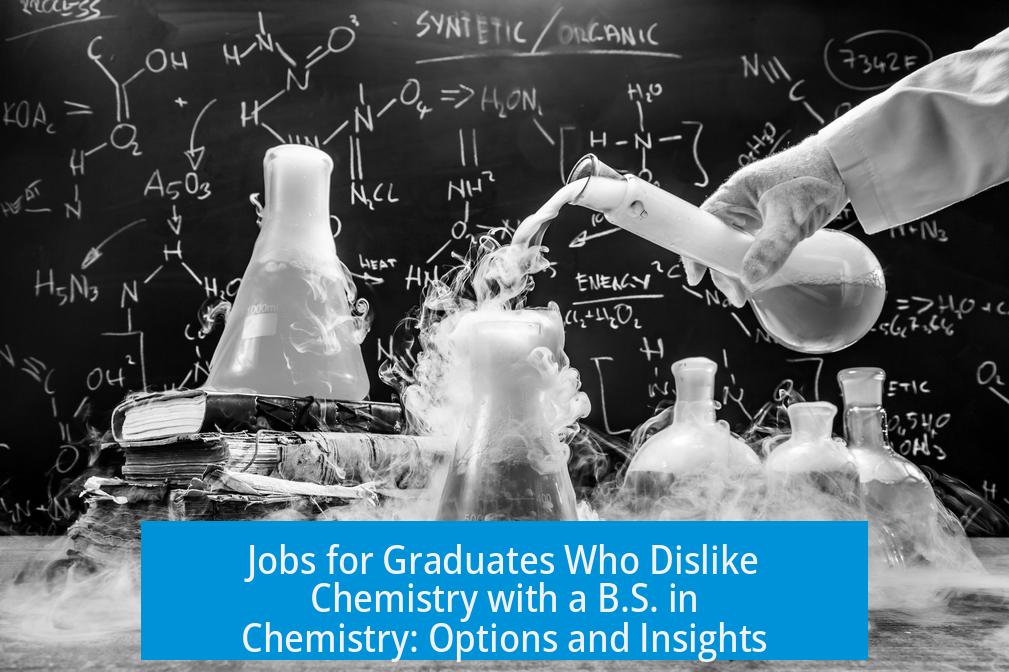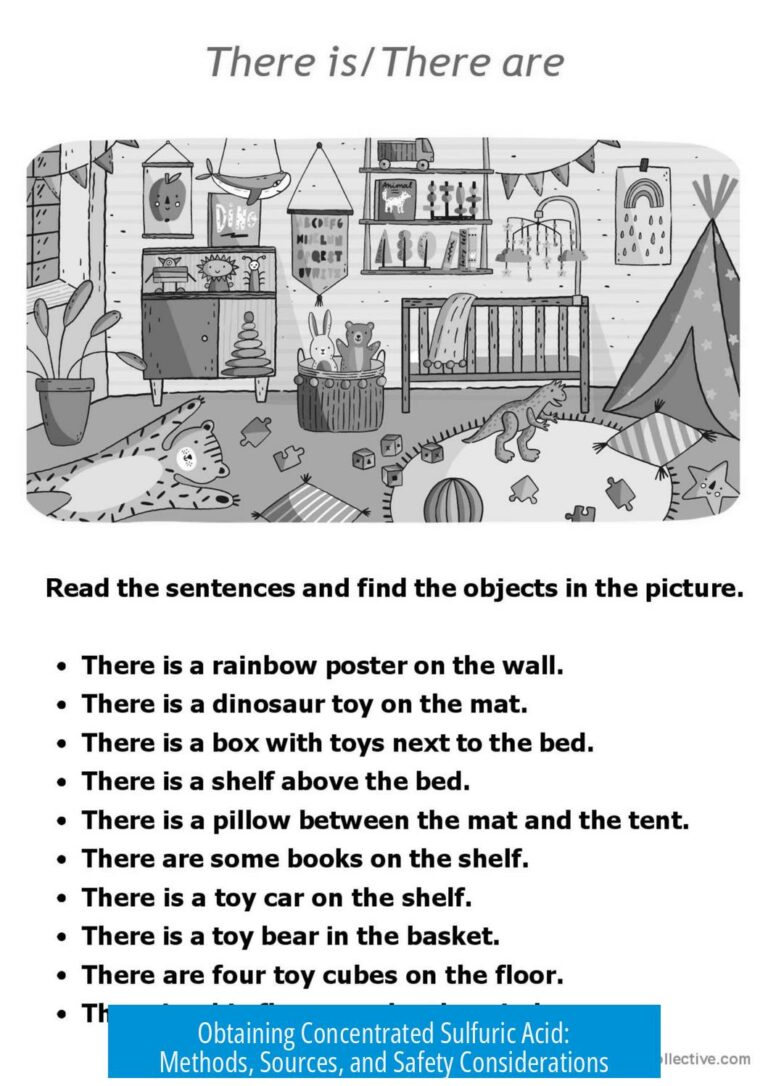What Kind of Jobs Can Someone Who Hates Chemistry Get with a B.S. in Chemistry?
A person who holds a Bachelor of Science in Chemistry but dislikes chemistry itself can pursue several job options that limit deep chemical theory and focus more on routine tasks, applied skills, or complementary fields. These job roles often involve standardized lab procedures, management, sales, or adjacent technical and business careers. The degree provides a broad foundation, opening doors to diverse careers beyond traditional chemistry-heavy work.
Quality Control (QC) Lab Jobs: Routine and Procedural Roles
Quality Control (QC) lab positions are some of the most accessible roles for individuals with a B.S. in Chemistry who prefer practical, procedural work over theoretical chemistry. QC work often involves preparing and testing samples according to predefined protocols. Employees follow detailed “recipes,” minimizing the need for complex problem-solving or derivation of chemical equations.
- QC jobs are usually method-driven and repetitive, suitable for those who dislike complex chemistry but are comfortable with lab equipment and procedures.
- Tasks include preparing samples, running analytical tests, recording results, and filling out documentation such as spreadsheets.
- While the work may be monotonous, QC positions often provide stable, middle-class wages.
Some professionals with minimal affection for chemistry thrive in QC roles due to their clear structure and limited theoretical requirements. According to reports, these positions are common in pharmaceutical and manufacturing industries and do not require extensive math or chemical derivation.
Related Non-Lab Roles: Management, Sales, and Safety
Not every chemistry-related career mandates working at a lab bench. Several jobs leverage a chemistry degree in non-laboratory contexts:
- Management Roles: Overseeing teams or operations in chemical companies or laboratories without direct laboratory work.
- Chemical Supply and Sales: Selling laboratory equipment, raw materials, or chemicals to research institutions and industries. This requires understanding product applications rather than chemistry theory.
- Safety Officers: Ensuring compliance with health and safety regulations, particularly in chemical manufacturing or pharmaceutical settings.
The pharmaceutical industry often offers positions where chemistry background provides credibility but daily tasks focus on coordination and communication rather than chemical analysis.
Science Adjacent Careers
Several career paths lie adjacent to pure chemistry but capitalize on the knowledge and credentials earned during studies.
- Patent Analysis and Intellectual Property: Chemistry graduates may work in patent law, especially if paired with further legal education. These roles focus on technical assessment and legal defense rather than lab work.
- Science Policy and Advocacy: Jobs influencing science funding and regulation, utilizing chemistry knowledge to inform policy decisions.
- Science Writing and Communication: Translating complex scientific concepts into accessible language for public or industry audiences.
While some of these paths require additional qualifications, they provide alternatives for those avoiding hands-on chemistry.
Technical and Business Transition Opportunities
Chemistry graduates often possess problem-solving skills and technical literacy transferrable to other industries. For those disinclined towards chemistry:
- Technology: Software coding, data analysis, and technical support roles may be ideal. Coding boot camps or short courses can complement the degree.
- Business and Management: Leveraging analytical skills into project management, sales operations, or consulting.
These shifts involve leaving traditional chemistry roles but benefit from a scientific mindset and disciplined work habits.
Specialized Roles with Limited Chemistry Exposure
Some specialized jobs require a chemistry degree but have little direct chemistry engagement:
- Pharmaceutical Sales Representative: Selling drugs and medical products, relying on knowledge of chemistry and biology but focusing mainly on client relations.
- Industrial Hygienist and Environmental Specialist: Monitoring workplace exposure to chemicals and pollutants without engaging in chemical synthesis or analysis.
- Teaching: Educating at primary or secondary levels in general science rather than advanced chemistry.
These roles emphasize interpersonal skills and oversight rather than laboratory theory.
Unique and Niche Opportunities
Chemistry degrees open doors to diverse and sometimes unconventional careers. Some examples include:
- Craft Brewery Work: Chemistry graduates are well-suited for roles in craft breweries as brewers or quality analysts, applying knowledge of fermentation and microbiology.
- Specialized Manufacturing: Positions in plastics, cosmetics, or food production involve applied chemistry rather than theoretical research.
While humorous mentions exist about unlicensed drug production, legitimate niche careers in industry-based applications remain a practical option.
Perspective on the Chemistry Degree and Career Paths
Holding a B.S. in Chemistry is not a career constraint but a professional asset. While some dislike certain aspects of chemistry education—such as intense math or theoretical courses—the degree imparts transferable skills.
- The degree should be viewed as a stepping stone opening multiple career doors, not limiting options to traditional chemistry paths.
- Graduating on time is often more advantageous than changing fields and prolonging studies.
- Many chemistry courses emphasize analytical skills, attention to detail, and problem-solving, valued across industries.
Thus, career success for those who dislike chemistry theory depends on choosing roles aligned with their preferences within or adjacent to chemistry fields.
Summary Table: Job Options for Those Who Dislike Chemistry with a B.S.
| Job Category | Typical Work | Involvement with Chemistry | Additional Requirements |
|---|---|---|---|
| Quality Control (QC) | Routine sample prep, analysis, documentation | Low; follows set protocols | Attention to detail |
| Management & Sales | Team oversight, client relations, product sales | Minimal; applied knowledge | Communication skills |
| Science Adjacent Roles | Patent analysis, science writing, policy | Variable; more technical/legal | Some require additional education |
| Technical/Business Transition | Coding, business analytics, project management | None to low | Technical/business training |
| Specialized Roles | Environmental safety, pharmaceutical sales, teaching | Low; compliance and communication focused | Certifications or teaching credentials |
| Niche Industries | Craft brewing, manufacturing | Applied; practical chemistry | Industry-specific training |
Key Takeaways
- A B.S. in Chemistry offers employment options beyond heavy theoretical or lab chemistry.
- Quality Control (QC) roles provide structured, routine work that limits deep chemistry engagement.
- Management, sales, safety, and science adjacent jobs minimize laboratory tasks.
- Careers in technology, business, and coding are viable alternatives leveraging analytical skills.
- Specialized and niche roles like craft brewing allow practical chemistry application.
- The degree is a flexible qualification that opens multiple pathways, not narrow constraints.
What types of chemistry jobs require little to no deep chemistry knowledge?
Quality Control (QC) lab roles focus on following set procedures rather than performing complex chemistry. These jobs involve sample prep, routine tests, and data entry without deep theory or math.
Can someone with a B.S. in chemistry work outside the lab if they dislike hands-on chemistry?
Yes. Options include management, chemistry supply and sales, safety officer roles, and pharmaceutical industry positions. These jobs rely more on industry knowledge than lab work.
Is it possible to use a chemistry degree in non-chemistry careers?
Yes. Many graduates move into tech, business, coding, science writing, or patent analysis. A chemistry degree can open these doors, even if you avoid traditional chemistry roles.
Are there niche or unusual jobs for chemists who dislike traditional chemistry?
Yes. Working in craft breweries is a popular example since it applies chemistry skills in a practical setting. Other niche roles include industrial hygiene or environmental specialist jobs.
Should someone who hates chemistry consider further education or switching majors?
Not necessarily. Graduating with the B.S. degree is valuable. The degree opens broader career options. Additional schooling may close other doors or delay entering the workforce.





Leave a Comment